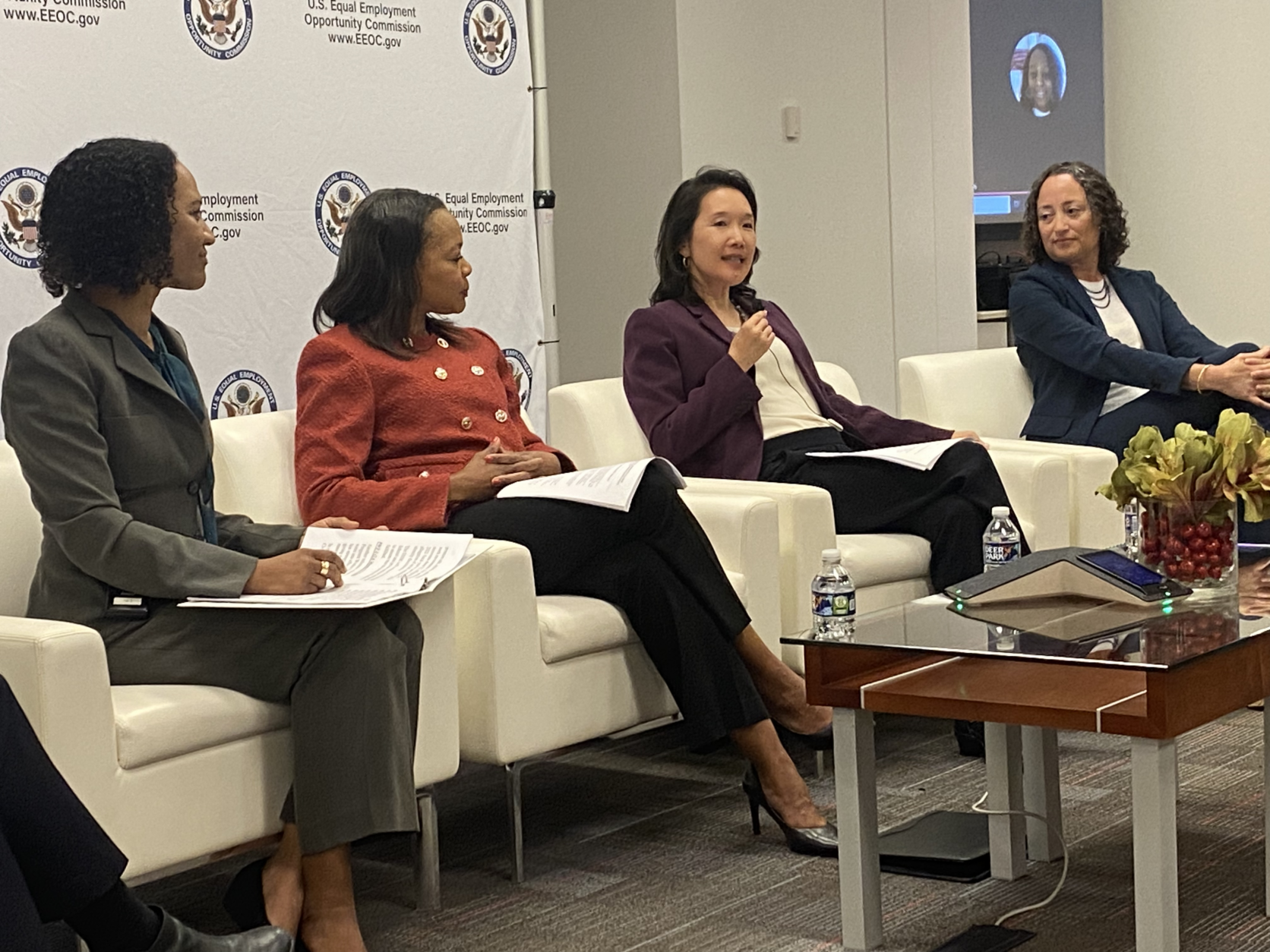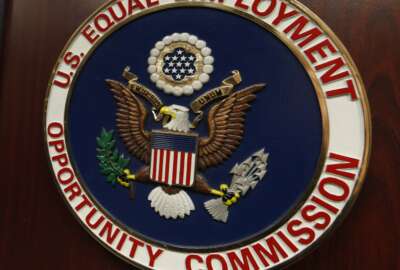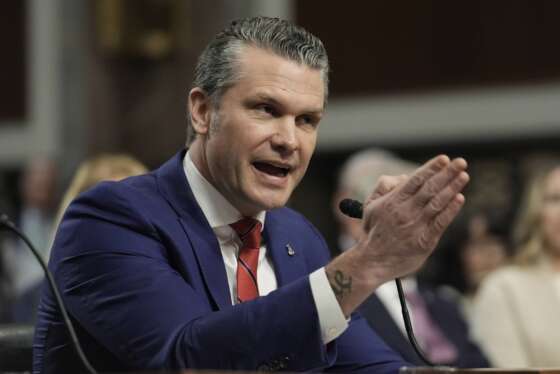Agencies moving forward on jobs and freedom: Commemorating the 60th anniversary of the March on Washington
Federal News Network and the Equal Employment Opportunity Commission hosted a panel reflecting on the vision of the 1963 March on Washington for Jobs and Freedom,...

60th anniversary March on Washington panelists share how their agencies are still working toward the original vision of the 1963 event.
Image from left to right: Equal Employment Opportunity Commission Chairwoman Charlotte Burrows, Department of Justice Assistant Attorney General for the Civil Rights Division Kristen Clarke, White House Deputy Assistant to the President for Racial Justice and Equity Jenny Yang, Department of Education Assistant Secretary in the Office of Civil Rights Catherine Lhamon. Photo credit: Jason Miller/Federal News Network.
On Aug. 28, 1963, the landmark March on Washington for Jobs and Freedom launched a major legislative push toward advancing civil rights. The historic event, with 250,000 attendees in the nation’s capital, directly led to the passage of the 1964 Civil Rights Act, a bill intended to end discrimination based race, color, religion, sex and national origin.
Now at the March’s 60th anniversary, leaders at the Equal Employment Opportunity Commission, the Department of Justice, the Department of Education and the White House reflected on how the March, as well as the subsequent passage of civil rights laws, impacted their agency, and how they are still working to carry out the vision and goals of the March today:
“In the lifetime of an institution as broad and deep as the federal government, [60 years] is not a long time. It’s incredibly important for us to be intentional about making sure that there are not those [hiring] barriers — leaning forward where we have the tools, such as with respect to disability, to really make sure that we can bring in persons with disabilities, who have one of the highest unemployment rates in the country. You have to lean into that, and the ways in which that can enrich you as an organization and as a government. Frankly, I think that the federal government, in particular, has a huge credibility problem if we are not able to tap into all the talent of this country.” — Charlotte Burrows, Chairwoman, Equal Employment Opportunity Commission.
“[The March] requires us all to dig in deep and have the courage to look at our systems, our institutions and to understand, ‘How can we continue to make them better? How can we make them fully inclusive and not be afraid to acknowledge when we have a problem? And to take action from a whole of society perspective to fix them?’ It takes not only courage, but it takes leadership to say this is a top priority … In every agency across government, we all must prioritize and focus on equity in all its forms. Agencies across the government are doing things differently … Agencies didn’t necessarily think their job was equity, now understand that it is.” — Jenny Yang, Deputy Assistant to the President for Racial Justice and Equity, White House.
“There are distressing changes in the ways that discrimination can manifest in schools and in life, and we need to be ready to respond to them … We are trying to be nimble, we’re trying to comprehensive, we’re trying to make sure that we actually recognize the harms that violate the laws that Congress passed. We are using all the tools that are available to us — our regulatory tools, our policy tools, our enforcement tools — to make sure that families know if their child is being discriminated against, and that schools know how to comply with the law.” — Catherine Lhamon, Assistant Secretary, Office of Civil Rights, Department of Education.
“The Justice Department’s Civil Rights Division came out of the Civil Rights Act of 1957, which predates the March, but frankly, it took the March, which spurred Congress to adopt new laws, new robust laws with teeth, that truly empowered the Civil Rights Division to be able to do the work that it does today … Since January 2021, we have prosecuted over 105 law enforcement officers who violate people’s civil rights. Fighting for racial justice and racial equity really lies at the core of our enforcement work in the Civil Rights Division.” — Kristen Clarke, Assistant Attorney General, Civil Rights Division, Department of Justice.
Copyright © 2025 Federal News Network. All rights reserved. This website is not intended for users located within the European Economic Area.
Drew Friedman is a workforce, pay and benefits reporter for Federal News Network.
Follow @dfriedmanWFED







